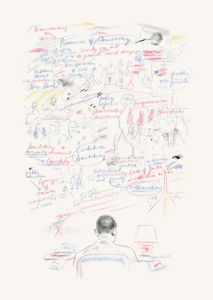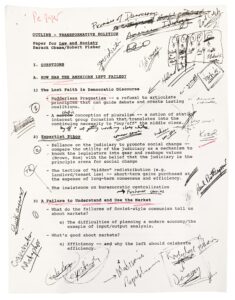Issue of the Week: Economic Opportunity, Human Rights, Disease, Hunger, Population, War, Environment, Personal Growth


A Lost Manuscript Shows the Fire Barack Obama Couldn’t Reveal on the Campaign Trail, 10.9.22
There are, as we’ve noted before, too many momentous things to comment on happening at the same time–sometimes more than others, and this may at least match any such time–to have to choose between, as we don’t have the capacity to comment on everything.
We are choosing, under the circumstances, to focus on what is in many ways a uniquely momentous guest essay in yesterday’s Sunday Review in The New York Times.
It couldn’t be more important or illuminating, but is likely to get lost for the vast majority of people with the emphasis, appropriately, being on the history-changing and planet-threatening headlines of the moment.
Nonetheless, if the title of the article doesn’t elicit a need to read response, nothing further we might say is likely to.
But just in case this may be a further motivation, we’ll add one sentence.
The content of this article impacts or relates in various ways to every history-changing and planet-threatening headline we are now facing.
Here it is:
“A Lost Manuscript Shows the Fire Barack Obama Couldn’t Reveal on the Campaign Trail”
By Timothy Shenk, Guest Essay, Sunday Review, The New York Times, Oct. 9, 2022
With Barack Obama’s presidency slipping into the not-so-recent past, it’s hard to remember the thrill — or dread — he once inspired. Even before entering politics, Mr. Obama had a way of telegraphing that he was headed for big things. Back in the early 1990s, journalists interviewing him for the flurry of profiles that appeared following his election as the first Black president of The Harvard Law Review discovered a young man brimming with confidence. “I really hope to be part of a transformation of this country,” he told Allison Pugh of The Associated Press, who came away struck by his “oddly self-conscious sense of destiny.”
Mr. Obama left Harvard with a blueprint for remaking American democracy. Written with Robert Fisher, a friend and former economics professor, the 250-page manuscript had the working title of “Transformative Politics.”
Life after graduation proved busier than either Mr. Obama or Mr. Fisher anticipated, and they never found time to whip their draft into publishable shape. As Mr. Obama became one of the most scrutinized figures on the planet, many of the manuscript’s pages gathered dust in Mr. Fisher’s basement. News of the abandoned book came to light only in 2017 after the publication of “Rising Star,” the historian David J. Garrow’s mammoth biography of Mr. Obama. Buried inside more than 1,000 pages of densely packed text, Mr. Garrow’s discovery attracted little attention. When I reached out to Mr. Garrow in the summer of 2019 for help getting a copy of the text, he told me I was the first person to ask.
That’s a shame, because reading “Transformative Politics” today is a bracing experience.
Speaking with a candor he would soon be unable to afford, Mr. Obama directed his fire across the entire political spectrum. He denounced a broken status quo in which cynical Republicans outmaneuvered feckless Democrats in a racialized culture war, leaving most Americans trapped in a system that gave them no real control over their lives. Although his sympathies were clearly with the left, Mr. Obama chided liberals for making do with a “rudderless pragmatism,” and he flayed activists — with the civil rights establishment as his chief example — for asking the judiciary to hand out victories they couldn’t win at the polls. Progressives talked a good game about democracy, but they didn’t really seem to believe in it.
Mr. Obama did. With the right strategy, he argued, Democrats could engineer a political realignment that would begin a new chapter in the country’s history.
